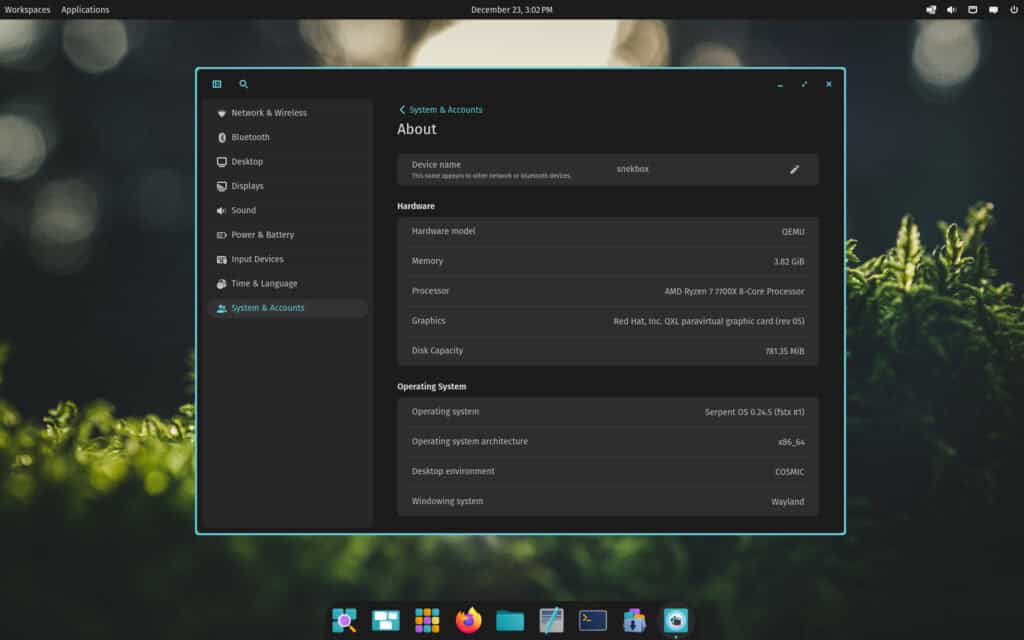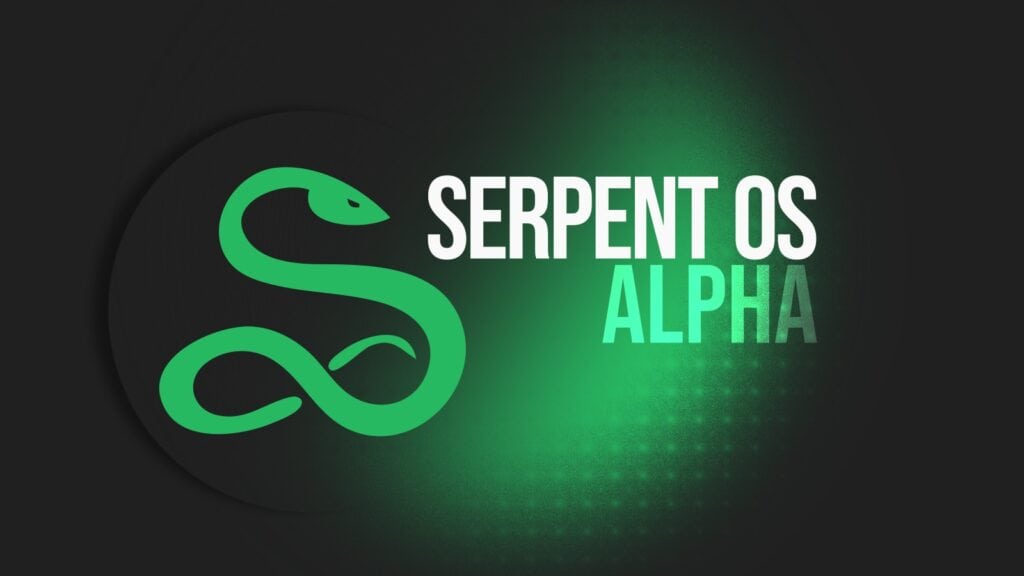Serpent OS has finally transitioned from its pre-alpha phase to the alpha stage of development. Why “finally,” you ask? Well, that’s because this project was first announced back in mid-2020, spearheaded by Ikey Doherty—a name you might recognize from Solus Linux’s not-so-distant past.
After stepping away from Solus, Doherty shifted his focus to this new venture, Serpent OS. Now, after four and a half years of development, the distribution has at long last entered the alpha phase.
For those unfamiliar, Serpent OS is a still-in-development stateless Linux distro targeted mainly at advanced users and developers, leveraging cutting-edge technologies like atomic updates, the LLVM toolchain, and memory-safe components.
With features like instant rollbacks, built-in deduplication, and seamless rolling updates, the distro is expected to ensure hassle-free maintenance and keep users focused on what matters.
The system currently supports x86_64-v2 desktop builds for GNOME (47) and COSMIC (Alpha 4) environments, with secure boot support via shim planned for the near future.

In the alpha release, the Serpent OS team expanded support for various hardware, including ASUS and Microsoft Surface devices. Additionally, NVIDIA graphics are now supported with open-gpu-kernel-modules. These drivers are prebuilt against the linux-desktop package, making installation smoother for users.
Gamers will be happy to learn that Steam can now be installed from Serpent OS repositories. Accompanying multilib drivers—such as mesa-32bit and nvidia-graphics-driver-32bit—have also been enabled, facilitating a more seamless gaming experience.
Moreover, as part of Serpent OS’s ongoing modernization efforts, several core utilities have transitioned to Rust-based implementations:
- curl is now built with rustls support.
- uutils-coreutils replaces the traditional coreutils.
- sudo-rs stands in for sudo.
- ntpd-rs takes over timesyncd’s role.
Software-wise, over 1,600 commits have landed in Serpent OS’s recipes repository since the pre-alpha phase. Notable package updates include:
- COSMIC Alpha 4
- Linux kernel 6.12
- Firefox 133
- LLVM 18.1.8
- GNOME 47.2
Regarding tooling improvements, Serpent OS’s atomic package manager, moss, swaps the entire “/usr” directory during system updates, guaranteeing that each upgrade fully completes—or rolls back to a known good state—without partially applied changes. It also now automatically cleans older kernels and initrds to mitigate ENOSPC errors on the boot partition.
Improvements to the lichen, a Serpent OS installer, include a revamped user interface and the option to select among xfs, ext4, and f2fs for the root filesystem. By default, the team advises caution with ext4 if retaining hundreds of transactions is a concern due to its inherent hardlink count limitations.
With the alpha stage now underway, the focus shifts to enlarging the contributor base, refining documentation, and polishing core tooling. Upcoming changes will include deeper integration of the moss package manager with packagekitd, enabling compatibility with GNOME Software and the COSMIC Store.
See the release announcement for more information on the Serpent OS Alpha build. ISO installation images are available from the project’s website downloads page.
